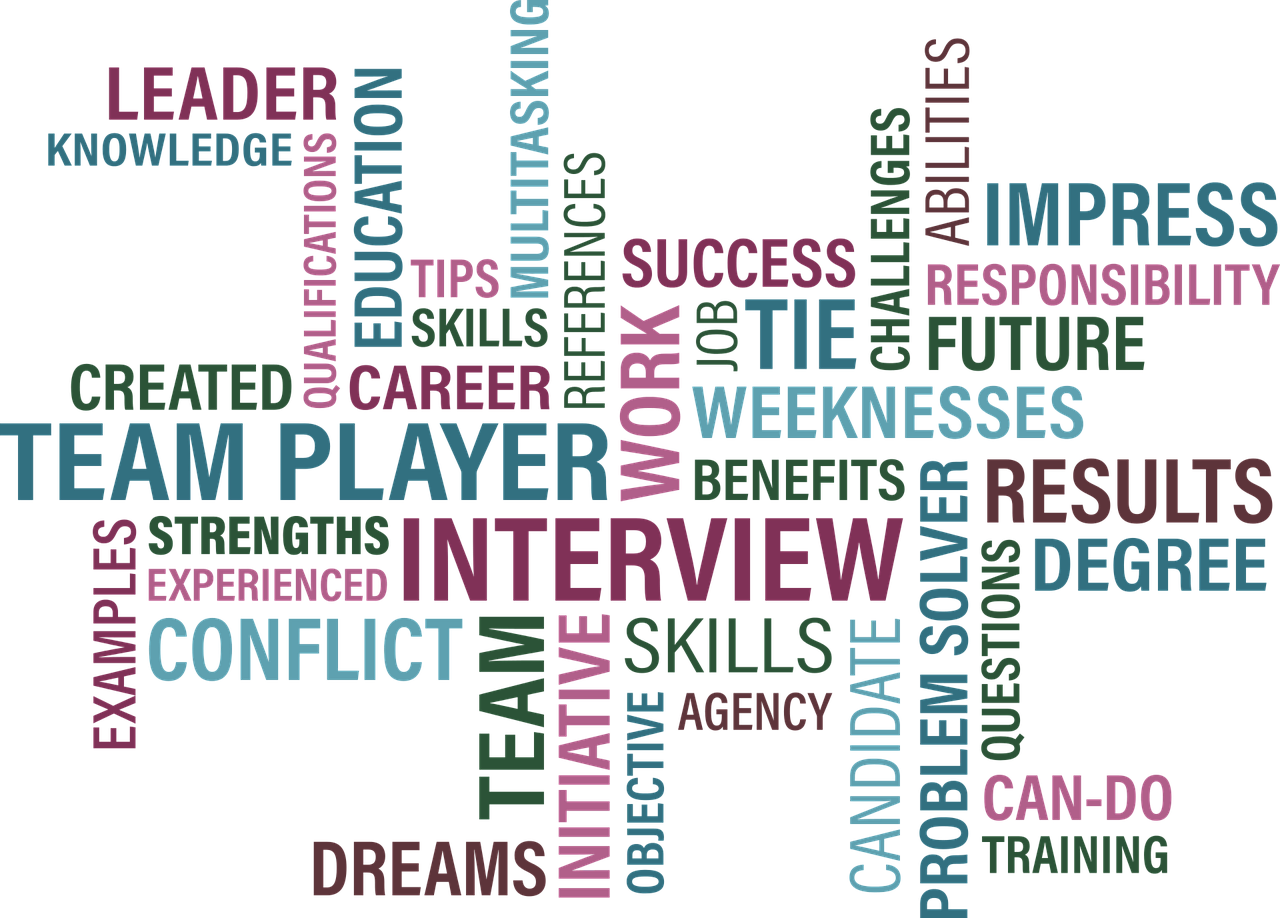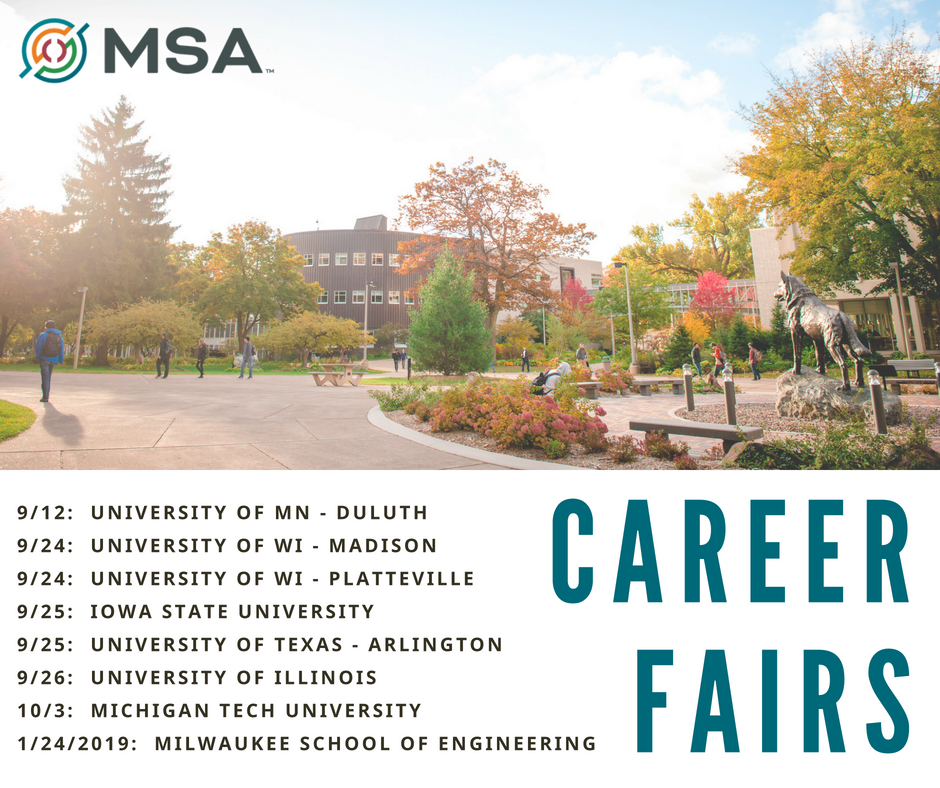It’s career fair season and you’re ready to showcase your professional prowess at the university’s upcoming event. You just need to show up, flash a smile, hand over a copy of your resume and wait for that sweet offer letter to arrive in the mail. Right?
Not so fast.
You actually have a bit of homework to do first. Yep, the ‘H’ word. Sorry. Trust us, a little extra effort on your part will help you stand out from the crowd and just might help land that perfect new internship or job opportunity. It comes down to three key components: Defining your personal brand, being thoroughly prepared and making impactful impressions throughout all stages of the interview process.

No. 1: Your personal brand.
This is the unique combination of who you are, what you do and how you do it. Take time to self-reflect and develop your brand, knowing that it may evolve as you go. A successful personal brand will stick in the minds of potential employers and recruiters like a jingle that they can’t stop humming.
– Who you are. Your character, personality and values. Be confident in your individuality, honest about your interests and articulate about what your strengths and opportunities for improvement might be.
– What you do. Your purpose. This is what inspires and drives you, what you find most rewarding, in which situations you perform your best. Identify what your core goals and most productive/preferred methods of work are. This will help ensure that you end up in a position that is the right fit.
– How you do it. Your skills, experiences, credentials and accomplishments, your in-print and online identities. This might be a combination of things: a portfolio of your work, list of projects, web or digital footprints, a professional online voice, updated social media profiles, list of volunteer work or university organizations, all working to form a cohesive illustration of ‘who’ and ‘what’ outlined above.

No. 2: Be prepared.
Your school will publish a list announcing which companies will be present at the upcoming career fair. Study the list and pinpoint which ones you’re most interested in connecting with.
– Learn as much as you can about companies of interest by visiting their websites, researching their work and checking out their social media pages to get a sense of corporate culture. Jot down what things resonate with you as well a list of questions that you may want answered.

– Prepare a short, genuine “elevator speech” about yourself and what your professional goals are. Make direct, articulate connections between yourself and each individual employer. Recruiters screen many students per day; be respectful of their time and make every moment count.
– What to bring? A folder or padfolio with plenty of copies of your updated resume, a notepad and pen, as well as notes or questions that you have prepared in advance.
No. 3: Create a positive impression.
So, I shouldn’t just swing through the career fair in my favorite sweatpants and hand the recruiter my resume while simultaneously grabbing a free fidget-spinner from the table?
Think again.
True, we want you to be your most confident, comfortable self, but it’s also important to look like you’re ready for a professional opportunity. Let’s talk about how to make the most beneficial first, middle and lasting impressions throughout all stages of the interview process.
– First impressions matter. By this, we mean the power of the human smile, engaged eye contact and a firm handshake. Put your best foot forward and mind your manners. Clean up and wear something nice. Then take a deep breath, walk over and introduce yourself.

– It’s not me, it’s you. While speaking with a company recruiter or representative, remember this: It’s not all about you; it’s equally about the company. This is the perfect time to ask those questions you’ve compiled and to learn more about what makes the company tick. Be curious. Allow conversations to transition naturally and leave space for new questions to arise.
– When speaking about your skills or experience, include information about the process: what led you to a successful outcome and why do you think it was successful? This is not an opportunity to brag, but rather to educate about how—and in what situations—you do your best work.
– Be honest. Discuss what you’re interested in and what you find rewarding, not what you think the interviewee wants to hear. Not exactly sure what you’re interested in? Say so. Internships especially are all about learning what does interest you and in general, employers are just looking for a sense of ambition and a willingness to try.

– Say “thank you.” “Have a good day” is nice, but it’s not “thank you.” Another smile, confident handshake, eye contact and a genuine “thank you” at the end of the interview will go a long way.
– Follow up. Companies speak with hundreds—if not thousands—of students throughout the course of a career fair season, so a prompt (within 3-5 days) follow-up and thank-you note or email will help you stand out from the crowd. Companies also have different preferred next steps in the interview process. Find out what those steps are, and follow their suggestions in a timely manner.
The MSA Campus Ambassador Team looks forward to meeting you a number of upcoming career and internship fairs – mark your calendars!

As a unique additional step in the process, we will also be providing all interested candidates a link to participate in a video interview with us! This step can be done on your own time, wherever you’re most comfortable. It will consist of a series of pre-recorded questions that you will provide answers to via a video recording platform called Wepow. It provides a great opportunity for us to get to know you even better, and will help us in selecting future MSA team members!
For more information about current MSA openings or to read more about our firm, visit our MSA Student Center. Good luck!

